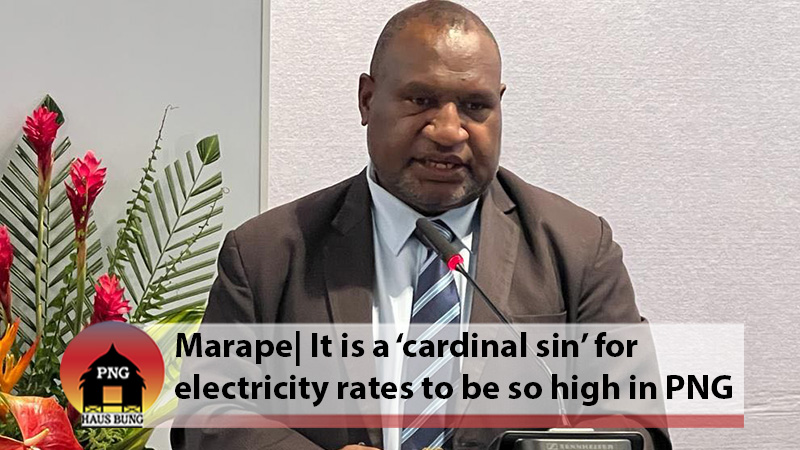Papua New Guinea’s Prime Minister James Marape termed the country’s very high electricity rates, a ‘cardinal sin and the setting up of the National Energy Authority was the Government’s response to this situation, while PPL would be just an energy service provider.
He made these when addressing workshop on innovation in the electricity sector in the country, with a focus on renewable energies.
This workshop was organized by the International Finance Corporation (IFC) of the World Bank and attended by representatives from both the Government and public sector.
PM Marape said considering that the country has a high prevalence clean and green energy sources, it was ironic that it could not provide cheap electricity to the people
“At the moment, sadly, it (cheap electricity) is not so. We have one of the highest tariff structures in our country. It is morally wrong for us to maintain this high cost structure in a land that is prevalent with many clean energy sources for us to tap into.”
“This is wrong and is something that we are working to correct at the very earliest. We have clearly identified impediments to arrive at lower-cost electricity, that is sourced from cleaner sources.”
PM Marape said PNG would transition into using gas as a cleaner and greener source of energy, and into the future, generate energy from hydro, geo-thermal, solar and various other natural sources.
“Today, for the first time, by deliberate intervention, we have established the National Energy Authority. PNG Power Ltd is reduced to just a company, amongst, hopefully, many companies in the power-generation space as we go forward into the future,” he said.
“Whilst they are the only major, State-owned, power company, we realise their inadequacies. It is about time we step up the game.”
“We have a mission to deliver electricity to 70 per cent of our people by 2030 – which is only seven years away. Having realised this, PNG Power alone cannot be a regulator, and deliverer, of power to our people. We have now established a regulator, at arm’s length from power companies, and PNG Power can be amongst many power companies in our country.”
The workshop noted that while 60 per cent of Papua New Guineans had access to some form of electricity supply, only an estimated 13-15 per cent of the country’s growing population had access to on-grid electricity, even though PNG had great potential for solar, wind and other renewable energies, which could provide sufficient electricity for all Papua New Guineans, and even for export.
Workshop participants discussed various potential solutions for the sector, such as introducing concessions for smaller grids; allowing self-generation; introducing an independent system operator; establishing a single buyer for energy producers; and developing common use infrastructure for projects in green hydrogen, an area where the country may have great potential.
IFC has been involved in the country’s energy sector for a number of years – the Lighting PNG programme, for example, has helped provide off-grid access to lighting and mobile charging for
more than two million people across the country. At present, IFC is also helping the utility, PPL, to design public-private partnerships for five provincial cities, based on solar energy generation.

